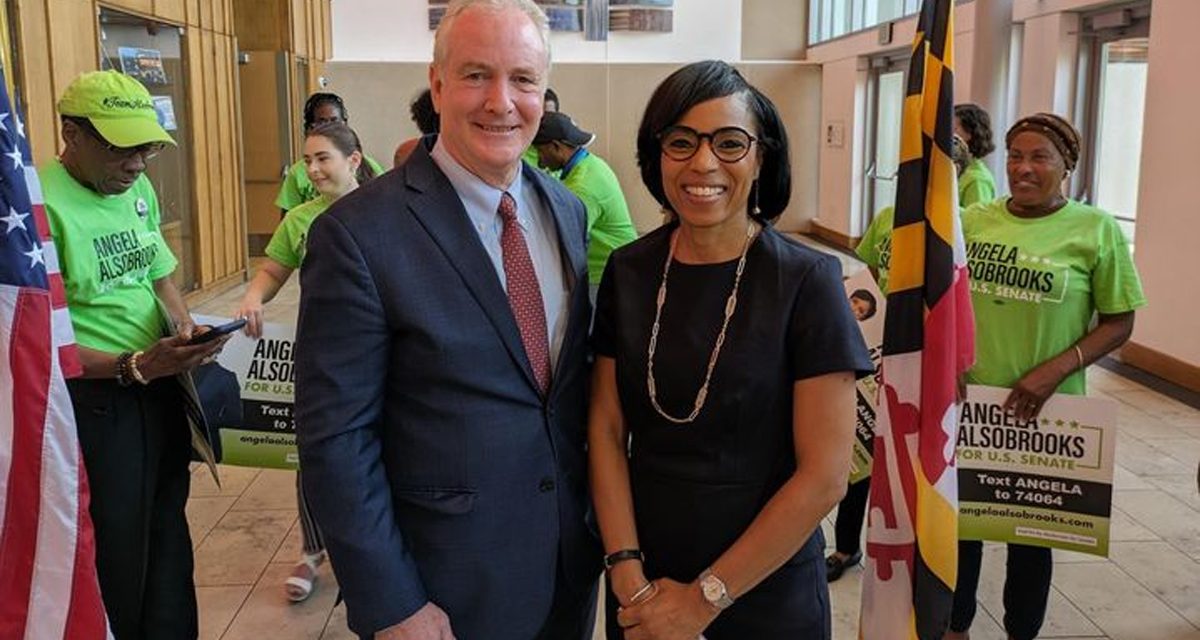Maryland Senators Oppose Selective Back Pay Bill During Government Shutdown

Summary
Full Article
Maryland Democratic senators Chris Van Hollen and Angela Alsobrooks voted against a Republican proposal that would limit back pay to specific federal workers during the ongoing government shutdown. The Shutdown Fairness Act, introduced by Senate Republicans, would provide compensation only to federal law enforcement officers, Border Patrol agents, air traffic controllers, and active military personnel while excluding other furloughed employees.
During Senate debate, Van Hollen emphasized that the solution should encompass all federal workers. The best way to ensure that federal employees – all federal employees – get paid, and that the American people get the benefits of their services, is to reopen the government and do it now, Van Hollen stated. Alsobrooks echoed this sentiment, asserting, Our ask today is simple: pay them for the jobs that they were hired to do.
Van Hollen introduced alternative legislation, the True Shutdown Fairness Act, which would provide back pay for the entire furloughed workforce and prohibit firings of federal workers during a government shutdown. The bill has gained support from major federal employee unions, including the American Federation of Government Employees and National Federation of Federal Employees. More information about these organizations can be found at https://www.afge.org and https://www.nffe.org.
The debate highlighted significant philosophical differences between the parties. Van Hollen characterized Johnson's bill as dangerous, arguing against establishing a system where the president gets to decide what agencies to shut down, who to pay and who not to pay, who to punish, who to not punish. Johnson countered that the president should maintain flexibility to properly manage the federal government, and make the tough decisions, sometimes, to reduce the workforce.
Despite Johnson's invitation for bipartisan cooperation, noting there's a lot of areas of agreement, and Van Hollen's expressed willingness to sit down with him and his team to see if we can put together a proposal, Van Hollen ultimately opposed moving forward with the Shutdown Fairness Act. Our proposal doesn't discriminate among federal employees, Van Hollen emphasized, explaining his opposition.
The impact on federal workers has been substantial as the shutdown enters its fifth week. According to NFFE National President Randy Erwin, over 1 million employees will miss paychecks, creating severe financial hardship. Many are picking up second jobs, filing for unemployment, and waiting in lines at food banks just to survive, Erwin stated. They have been forced to cancel trips to see family, removed their children from sports and extracurricular activities, and are struggling to pay for childcare and college tuition.
Maryland, home to more than 160,000 federal employees, has been particularly affected. Alsobrooks noted that her constituents have endured 23 days of this administration using the shutdown as an excuse to further target federal workers. The Republican back pay measure failed to reach the 60-vote threshold for passage, with a final tally of 54 in favor. Meanwhile, the House remains out of session on orders of Speaker Mike Johnson, who insists he will not negotiate with Democrats over terms of ending the shutdown.
Federal workers are currently protected by the Government Employee Fair Treatment Act of 2019, a law Van Hollen and then-Senator Ben Cardin helped pass during the previous shutdown. This legislation ensures back pay once Congress approves new spending to reopen the government, though compensation doesn't occur until after the shutdown concludes. The current impasse leaves Congress without an immediate path to paying federal workers, though lawmakers could revisit proposals like Van Hollen's if talks resume next week.

This story is based on an article that was registered on the blockchain. The original source content used for this article is located at citybiz
Article Control ID: 265388